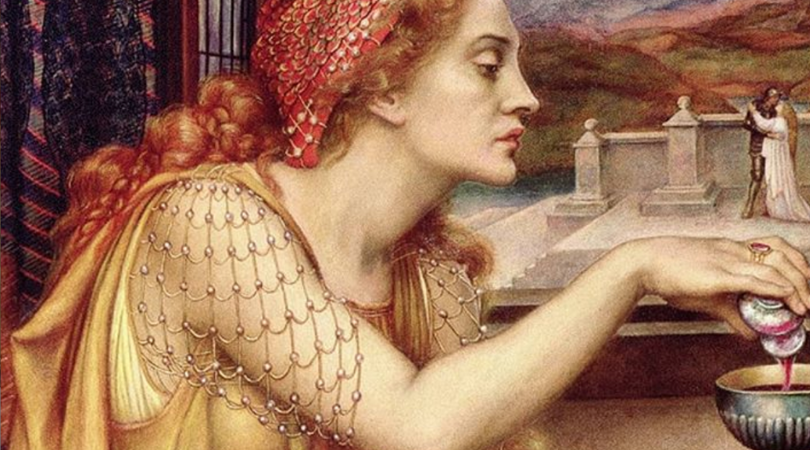Giulia Tofana was a professional poisoner. Who did she poison? Men. Some called Giulia Tofana a serial killer, and others called her a savior.
Videos by Rare
In the 17th Century, life was very different for women. Women had no social standing, jobs, or money outside of marriage. Therefore, marriages, oftentimes lonely or abusive, is where women found themselves. Many women lived in unhappy marriages, praying that their older husbands would kick the can sooner rather than later. Others, however, took matters into their own hands and helped their husbands out…of this life and into the next one.
Enter the criminal magical underworld.
Giulia and the Criminal (magical) Underworld:
This community of alchemists, black magic experts, and apothecaries were the answer to many people’s problems the way some turned to deacons and priests. The community provided services ranging from abortions to potions to kill.
Since records weren’t kept as well as they are today, Giulia Tofana’s background isn’t well known. It’s assumed that she was born around 1620 in Sicily in the city of Palermo. Her mother, Thofania d’Adamo, had poisoned her husband and was later executed for it.
Similar to her mother, Giulia Tofana was widowed and moved with her daughter Girolama Spara to Naples and later Rome. Here, she and her daughter amassed a reputation as being a source of refuge for troubled women. Unlikely allies aligned themselves with Tofana, Father Girolamo, a priest was one of the most surprising. Her MO as simple, she hid her potion well. One method was inside a bottle labeled Aqua Tofana, the other disguised as a women’s facial product. The perfume was sold as Manna of Saint Nicholas of Bari. It was a healing oil popular ar the time. But what Ms. Aqua Tofana put inside was meant to kill. She wanted it to appear innocuous, so the women buying from her wouldn’t appear guilty when something happened to their husbands. Which is ultimately what happened when the women purchased her concoction.
Tofana’s potion was clear, tasteless, and lethal. It could be dropped into anything, even a glass of water. Just a few drops could kill a man. The slow-poisoning product mimicked symptoms of other illnesses. The first dose caused tiredness and weakness. The next brought stomach aches, diarrhea, vomit, and heavy thirst. As the poison was slow working, it usually gave the dying husbands time to adjust their wills to ‘take care of’ their wives in their absence. The final dose would leave behind two things: a corpse and a widow.
The final step was for the widows to always request a post-mortem examination. With no physical signs of harm to discover in the deceased, the wives looked painfully innocent. Within a year the widows were free to move on.
Throughout the 17th century, Giulia Tofana worked in Italy until a bowl of soup did her in. One woman, in 1650, dropped the Aqua Tofana into her husband’s bowl of soup. But, before he took his first bite, she begged him not to eat it. He then proceeded to beat (and probably kill) her to discover the truth about the soup-that-imprisoned-thousands-of-women. As you can guess, that led the authorities to Giulia Tofana and her Aqua Tofana. Tofana was arrested and confessed to having killed approximately 600 men between the years of 1633 and 1651 with her potions.
One version of Tofana’s story ends with her being executed in Rome in 1659 Campo de’ Fiori next to her daughters and a handful of helpers. Later, so were some of her customers.
Another version of this story ends with famed composer Wolfgang Amadeus Mozart claiming to have been poisoned by her. Some allege that he blamed the concoction maker saying: “I feel definitely that I will not last much longer; I am sure that I have been poisoned. I cannot rid myself of this idea… Someone has given me Aqua Tofana and calculated the precise time of my death.”
Tofana never definitively recorded her tincture recipe, however, Guesses are that it contained lead, arsenic, belladonna, also known as ‘deadly nightshade’. We can only assume it was all as deadly as it sounds.



